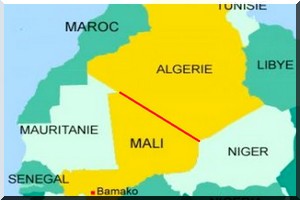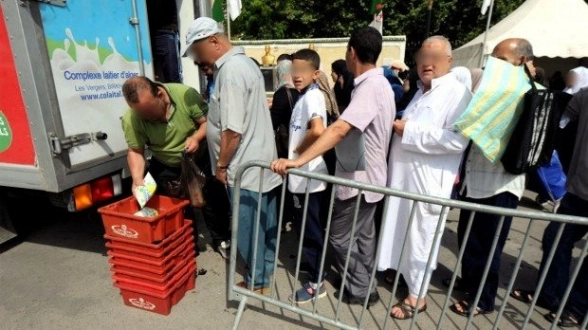The ruling Algerian junta has sparked a diplomatic crisis with another neighboring country, proving beyond doubt to be a regional pariah and a source of instability.
Algeria is controlled by an opaque military-intelligence regime suffering from megalomania. It has already strained relations with Morocco, Spain, France, Mauritania, Tunisia, Niger, UAE, Saudi Arabia, Jordan, Egypt, and Libya.
The reckless Algerian regime added fuel to the fire when President Abdelmajid Tebboune received radical Imam Mahmoud Dicko, opponent of the Malian military junta.
The move irked Bamako which summoned immediately the Algerian ambassador to protest against Algiers “unfriendly acts” seen as blatant meddling in Mali’s domestic affairs. Algiers responded by summoning Mali’s ambassador to Algiers, in a move that was seen in Mali as yet another provocation further worsening already tense diplomatic relations, and prompting Bamako to recall its ambassador to Algiers for consultation.
Bamako decried “recurrent meetings, at the highest levels in Algeria, and without the slightest information or involvement of the Malian authorities… with people known for their hostility to the Malian government.”
According to some analysts, Algiers rolled out the red-carpet for the Malian preacher and Tuareg separatists after the failure of its Polisario project despite spending of billions of dollars.
Two months ago, Algerian diplomacy got entangled with Niger after falsely announcing that Niamey accepted President Abdelmadjid Tebboune’s mediation initiative to end crisis in the West African country.
But Niamey denied the claims reported by Algerian authorities adding embarrassment to humiliation. The denial comes after the West African Economic grouping, ECOWAS, rejected Algeria’s mediation in the conflict with the putschists in Niger.
These successive setbacks exacerbated the Algerian regime frustration after unsuccessful bids to join the BRICS and host the African Nations Cups of 2025 or 2027.
Last month, the Malian army recaptured Kidal with the help of Russia’s Wagner Group, leaving Algeria stunned. Few years ago, Algeria, which shares over 1,300 kms of border with Mali, used to have an influence over Kidal, but today it was ejected as its former French occupier.
The seizure of Kidal by Les Forces Armées Maliennes (FAMa) dealt a hard blow to the 2015 Algiers-brokered Peace agreement. Following Niger’s rejection of Algerian mediation last month, the snub from Mali illustrates the decline of Algiers’ influence and marks the end of its hegemony in the Sahel.
According to several U.S. think-tank analysts, some terrorists and separatist groups operating in the Sahel, particularly in Northern Mali and Niger are expected to seek refuge in southern Algeria due to their ties with Algerian intelligence services.
Few days ago, Sergei Lavrov, Foreign Minister of Russia, Algeria’s traditional partner, reiterated his country’s firm support for a lasting solution based on UN Security Council resolutions on the Sahara conflict, without mentioning the self-determination referendum to which Algiers still clings to.
Lavarov made the remarks at a joint press conference held last Wednesday in Marrakesh following his talks with Moroccan peer Nasser Bourita at the end of the 6th Russian-Arab Cooperation Forum.
He also reiterated his country’s supportive stand to the efforts engaged by UN Sahara envoy Staffan de Mistura to advance the UN-led political process on the Sahara issue.
After his visit to Morocco, Lavrov flew to Tunisia and skipped Algeria, Russia’s long-time ally, suggesting that relations between the two countries are plummeting.
Moscow’s neutral stand on the Sahara and the exclusion of the Polisario from the Russia-Africa summits is a slap in the face of Algerian rulers. There is also a clear rift in relations between Moscow and Algiers in the Sahel and beyond as the ruling Algerian gerontocracy is steering the country towards chaos and seen as untrustworthy and delusional.



